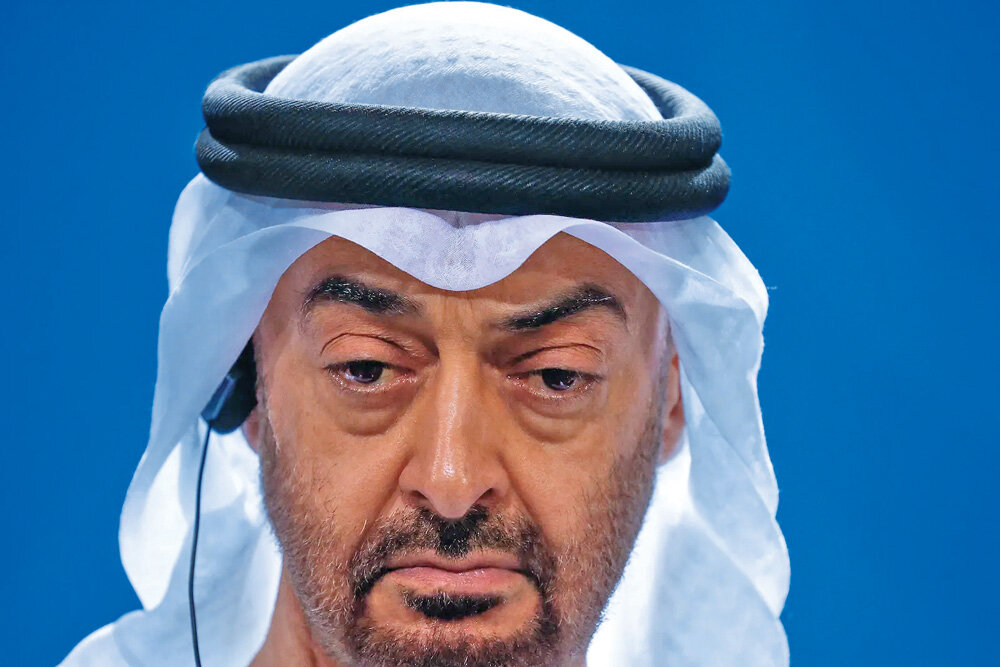UAE-Israel Ties under the Spotlight amid Emirati Outreach to Iran

TEHRAN – The United Arab Emirates is again reaching out to Iran to defuse tensions, but this time it’s doing so under different circumstances in the region, where ever-changing dynamics necessitate new approaches.
Two days after a senior Emirati official vowed to de-escalate tensions with Tehran, world media reported that a high-level Emirati delegation will visit Iran soon.
Citing Iranian and Persian Gulf officials, Reuters said the visit comes as the UAE works to de-escalate tensions with Iran.
The officials declined to confirm whether UAE's top national security adviser Sheikh Tahnoon bin Zayed Al Nahyan would lead the visit.
Sheikh Tahnoon, a brother of Abu Dhabi Crown Prince Mohammed bin Zayed, has been at the forefront of the UAE efforts to cool tensions with two archrivals of the Emirates – Turkey and Qatar. He paid surprise visits to both countries and met with their leaders. So, it’s not surprising if he shows up in Tehran.
In October 2019, Sheikh Tahnoon paid a secret visit to the Iranian capital amid rising tensions, according to the Middle East Eye.
While in 2019 the Emirati diplomatic contacts with Iran were necessitated by a dangerous escalation of tensions in the Persian Gulf under Donald Trump, the UAE’s current diplomatic outreach comes against a backdrop of renewed Emirati push to mend ties with all major players in the region, with Iran coming last in place after Qatar and Turkey.
But will the UAE’s drive for de-escalation with Iran succeed this time? Obviously, the answer largely depends on the seriousness of the Emirati side.
Back in 2019, the UAE said it wanted de-escalation with Iran. “At every turn, the UAE has avoided conflict with Iran. We will continue to take all measures to de-escalate tensions and reduce the potential for hostilities…. We seek a pragmatic, diplomatic path to lowering tensions and creating an opening for meaningful talks,” said then UAE Minister of State for Foreign Affairs Anwar Gargash.
As was the case in 2019, Gargash, now a diplomatic advisor to the UAE president, has recently said his country wants de-escalation with Iran. “We have taken steps to deescalate tensions, as we have no interest in a confrontation. The whole region would pay the price of such a confrontation for decades to come,” he told the Abu Dhabi Strategic Debate conference.
The UAE's renewed interest in patching up relations with Iran sparked speculation over whether the Emiratis would succeed in making progress in terms of de-escalating tensions with Iran.
Gargash has said they are “deeply concerned” about Iran’s policies in the region and hinted that Iran’s cessation of what he called “interference” in the region would pave the way for better relations between Tehran and Abu Dhabi.
This is a non-starter as it deals with the whole situation only through the Emirati perspective and fails to address the concerns of Iran.
Tehran has long complained about the UAE’s growing ties with Israel whether after Abu Dhabi’s normalization of ties with Tel Aviv or beforehand. Now that the UAE seeks to improve relations with Iran, these ties will likely turn into a major obstacle.
When the UAE normalized relations with Israel in 2020, Iran’s message was clear: don’t give Israel a foothold in the Persian Gulf.
The UAE, however, moved so far as to strengthen military and intelligence cooperation with Israel, something that even Jordan and Egypt, the first among Arab states to sign peace deals with Israel, did not do.
The Emirates seeks to improve relations with Iran at a time when Israel-UAE relations are being portrayed as a coalition against Iran. This assessment has been reinforced with recent exchanges of visits by the top commanders of Israeli and Emirati air forces.
On Thursday, the Emirati military-industrial Edge Group signed a “strategic agreement” with Israel Aerospace Industries, a leading aerospace company, for the joint design of a series of best-in-class 170-m adjustable unmanned vessels for the full range of military and commercial applications.
This kind of Israeli-Emirati interaction is incompatible with Abu Dhabi’s stated goal of improving ties with Iran. Because they put a big question mark over the goal.
In Iran, decision-makers seem to be warily dealing with the Emiratis. Many observers believe that Iranian officials will cautiously welcome the UAE's willingness for de-escalation but at the same time, they will keep a watchful eye on the UAE’s next moves and the Arab country’s possible involvement in Israeli-led anti-Iran adventures.
The UAE may seek to justify its relations with Israel as a sovereign issue with no direct impact on its relations with Iran. But this is not how things are seen in Tehran. Many in Iran and beyond believe that Israeli-Emirati relations can’t be separated from those between Iran and the UAE.
This makes it all the more important to the UAE to clarify its intentions and distance itself from ill-advised Israeli-American adventurism.
Leave a Comment